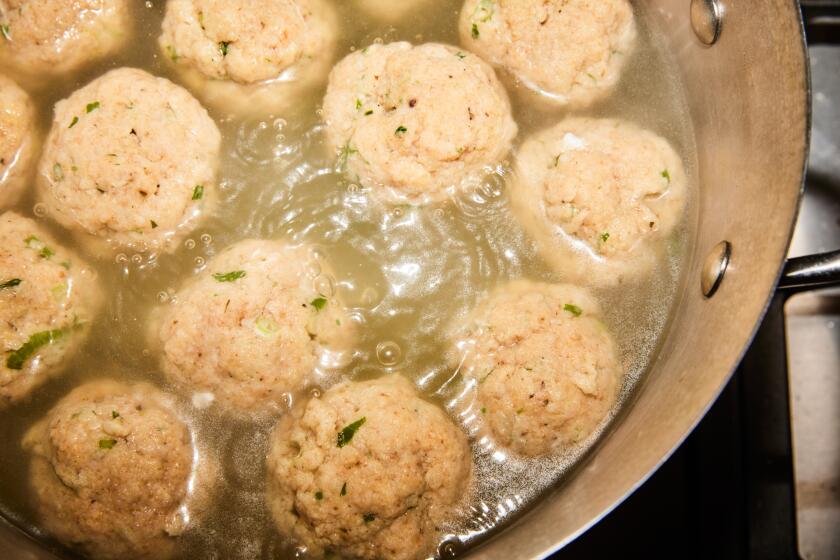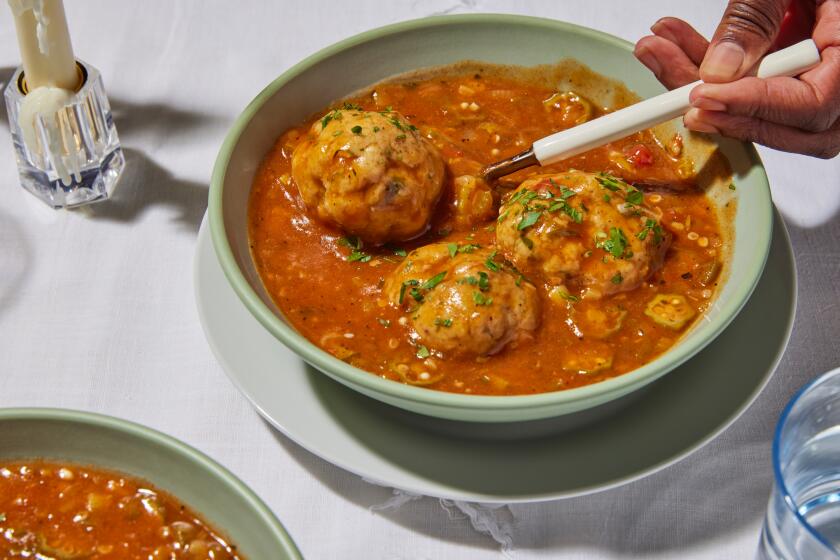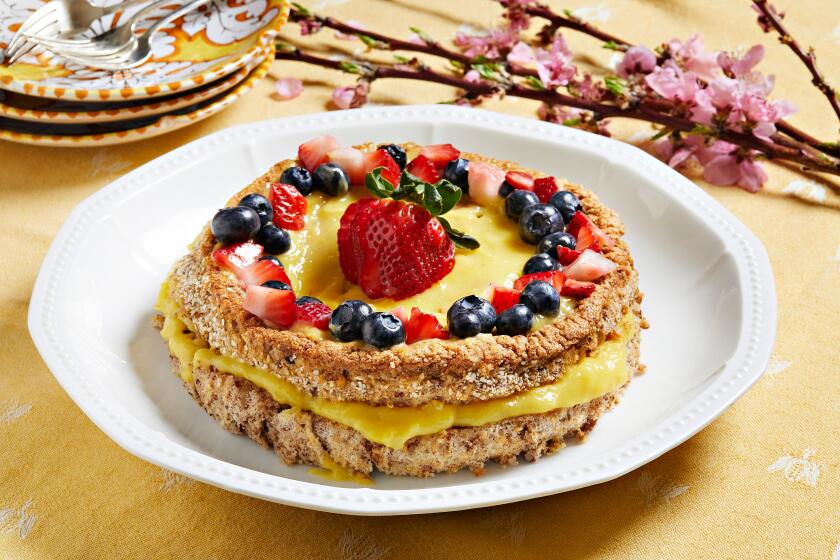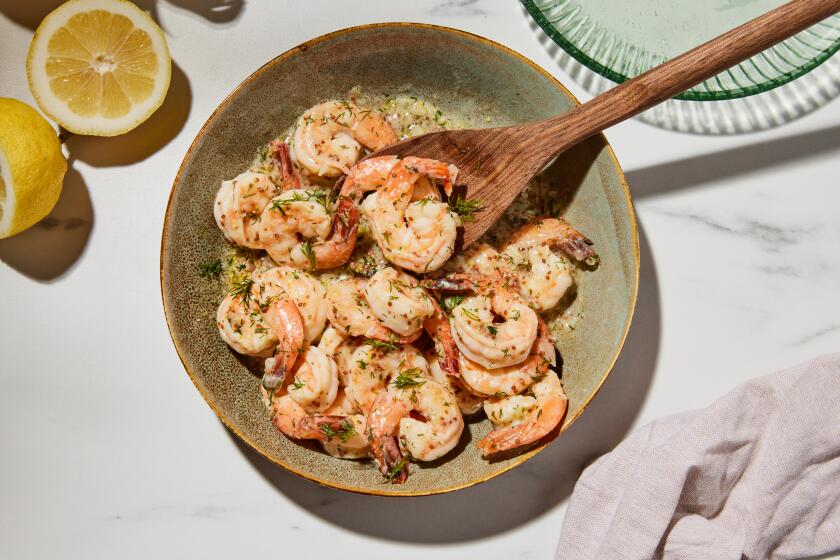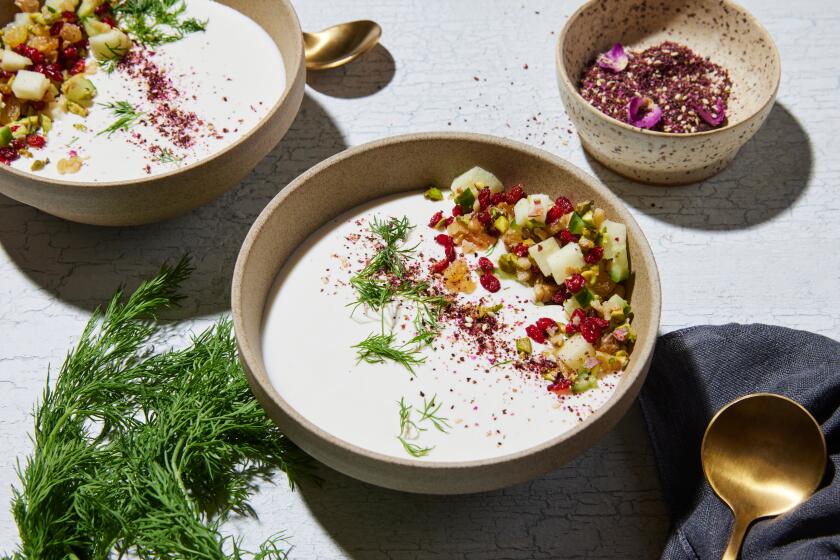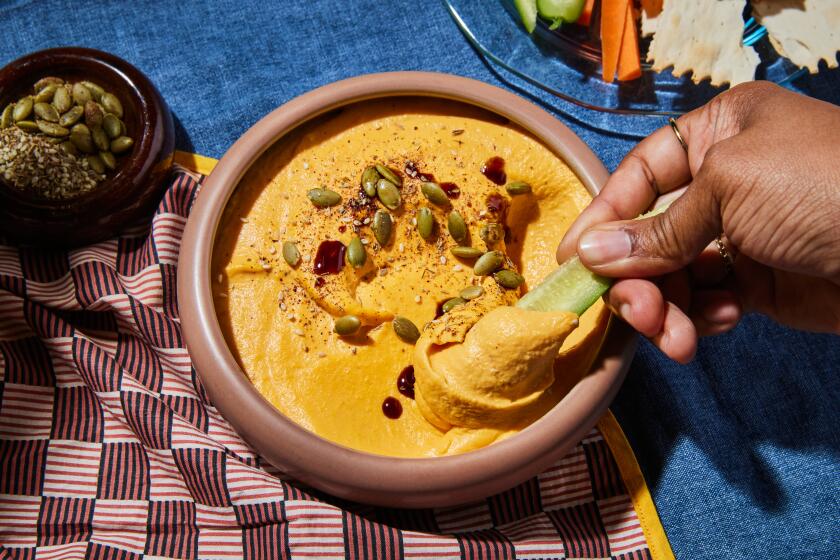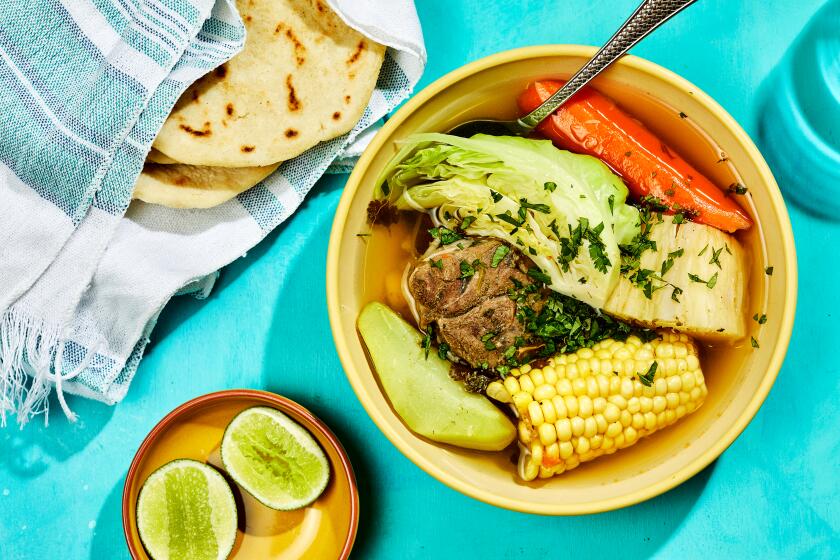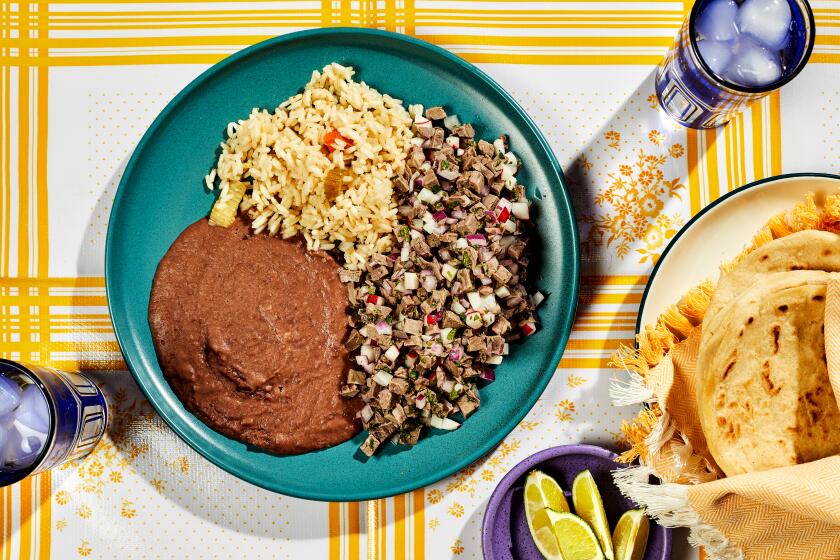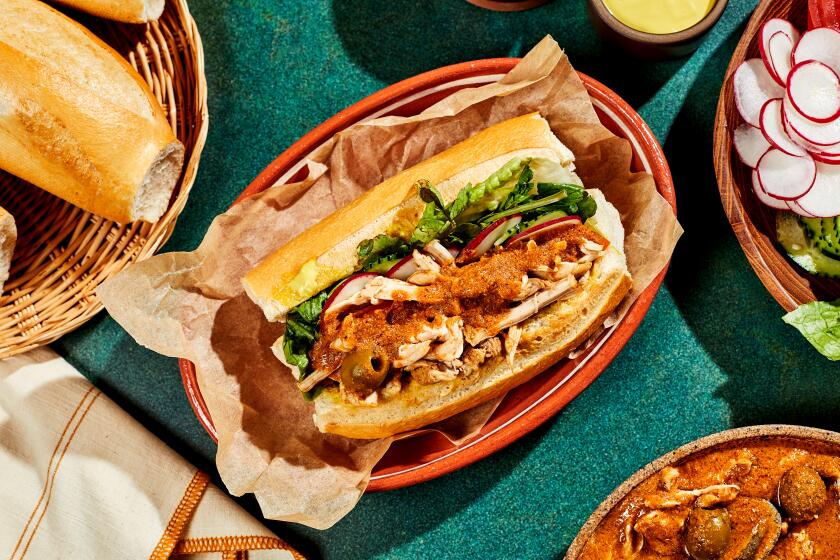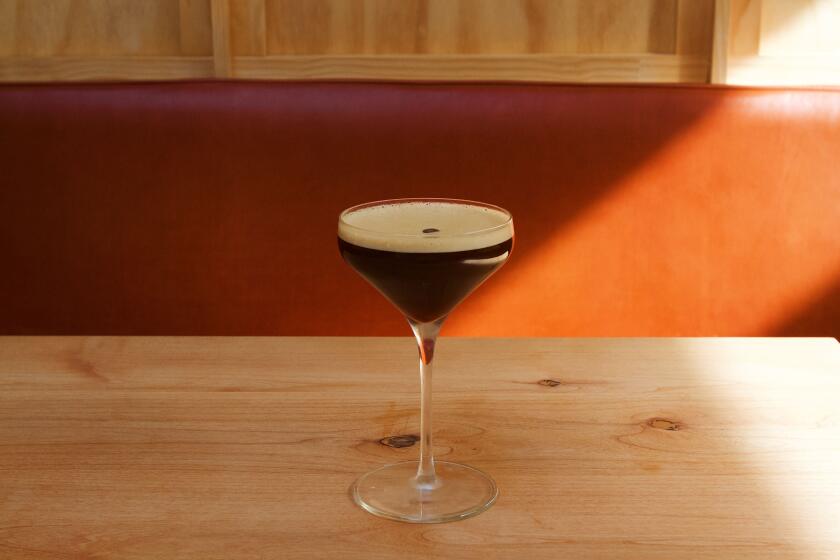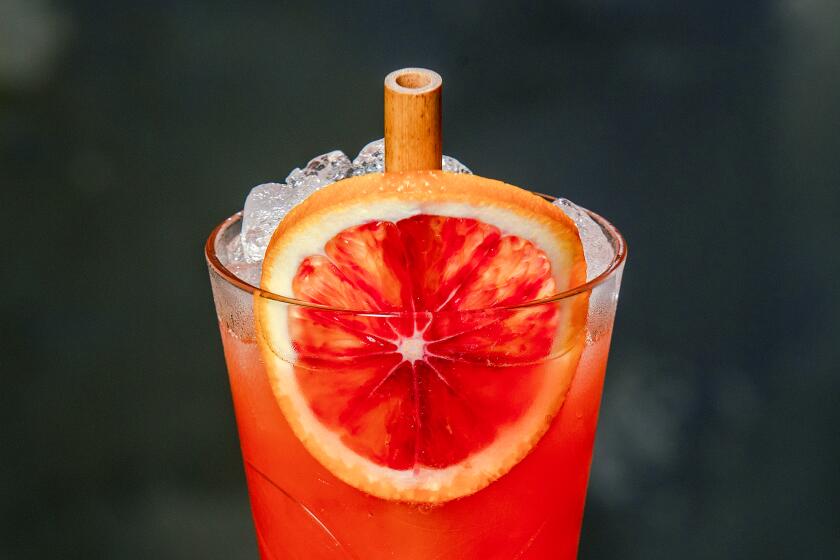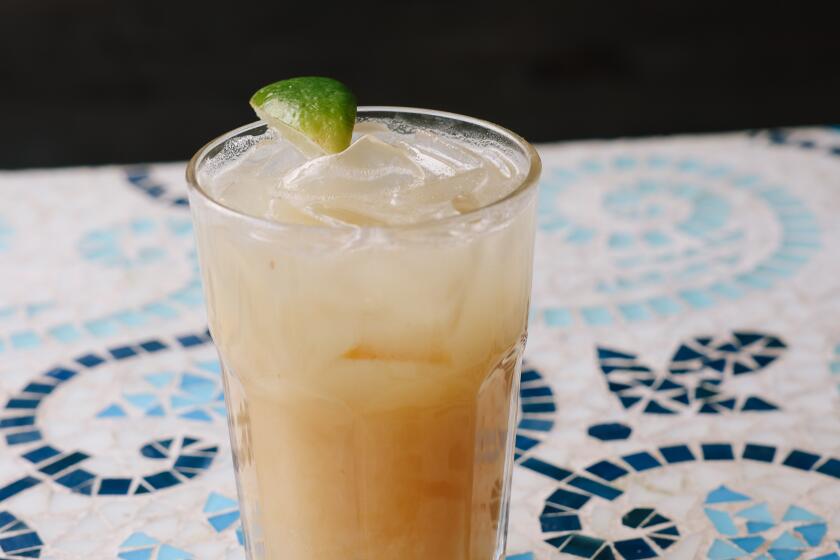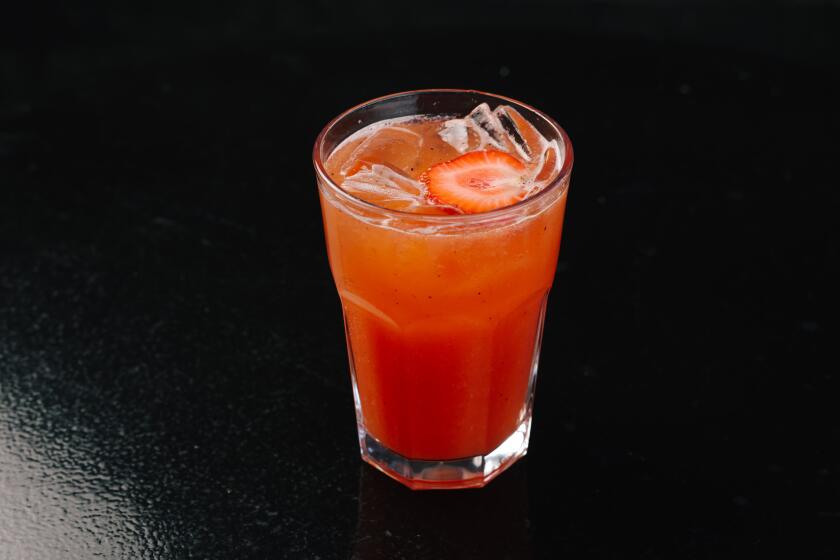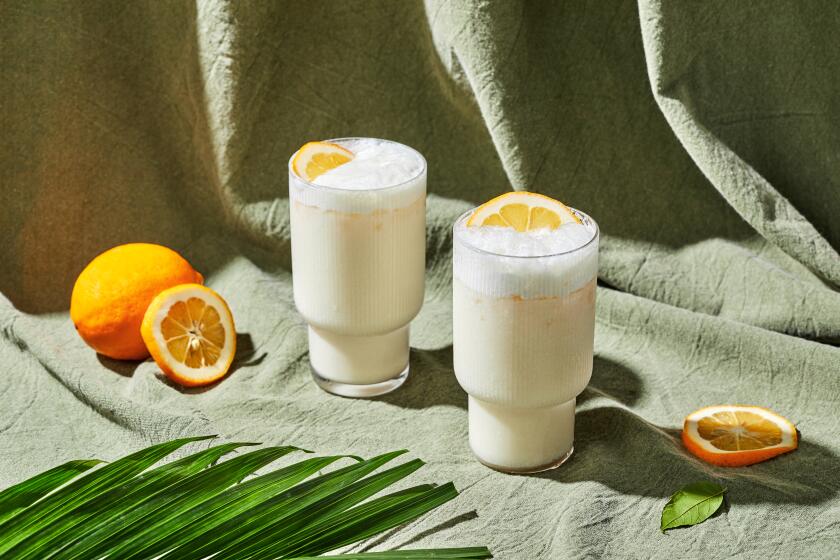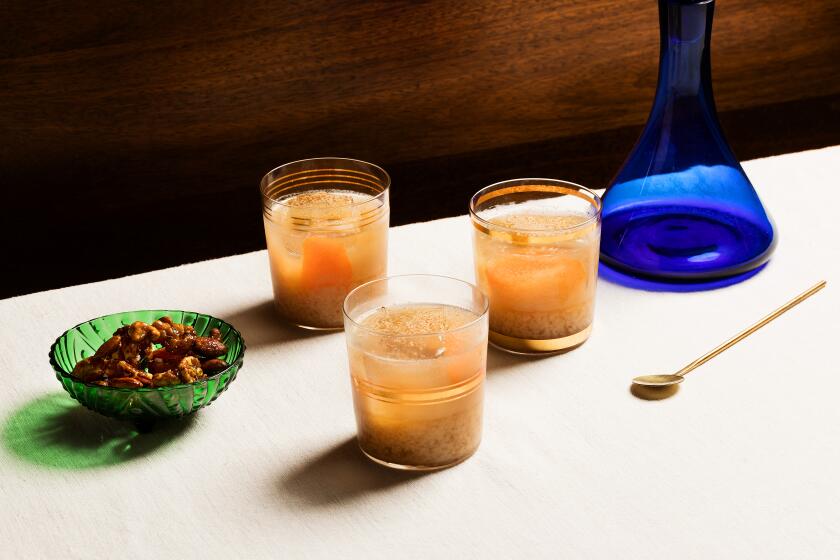Frappe

In the annals of Greek civilization, the so-called frappe is something of an overnight sensation.
The first one (that we know of anyway) was concocted from sugar, cold water and a spoonful of instant coffee granules at a trade show in Thessaloniki, Greece’s second-largest city, a mere 47 years ago -- the equivalent, in Greek years, of a week ago Thursday. Yet this month, while the events in Athens are on everyone’s lips, the lips of Athenians will be on the upper ends of bent straws buried in tall, icy cold glasses of frothy frappe.
The primordial joys of java are hardly new to the gregarious Greeks. The nation’s high volume of cafes, in terms of both number and noise, demonstrates widespread affection for the Arabica-imbued rendezvous. The utter darkness and density of traditional Greek coffee, brewed on stove tops to the consistency of mud, reflects an ancestral craving for caffeinated conversation.
Frappes deliver much of the potency Greeks love, only in a cold and wet format calibrated to their hot and dry summers. Better still, a tall glass lasts much longer than a demitasse.
“The frappe is a long break from everything,” notes Elena Votsi, the jewelry designer who created the medals for the 2004 Olympics. “It prolongs the opportunity to talk.”
A frappe is simply instant coffee, sugar and cold water shaken vigorously together to produce a thick foam, then poured into a tall, ice-filled glass. Add milk, or not, as you like. The frappe formula is mutable: Cafes offer three levels of sweetness -- gliko for sweet (three teaspoons sugar to one teaspoon instant coffee), metrio for medium sweet (two teaspoons sugar) and sketo for unsweetened. Then there’s the milk factor -- with or without. Me gala (“with milk”) invariably indicates evaporated milk, which produces a richer frappe, though whole and nonfat milk produce satisfactory results. The Athens-based fashion designer Angelos Frentzos likes his frappes blended sketo and horis gala (“without milk”) and with a triple dose of instant coffee. “Otherwise, you cannot understand the coffee taste,” he explains.
But even one rounded teaspoon of the Greek version of Nescafe packs a punch, which explains why Greek Californians seek it out at Greek House Importing (7856 Firestone Blvd., Downey) and Papa Cristo’s (2771 W. Pico Blvd., Los Angeles) or log onto to GreekShops.com, a Santa Monica-based importer. Papa Cristo’s will mix up a frappe for you too. While American brands lack the bitter bite the Greeks covet, just about any instant coffee will trap air when shaken with water and produce the frothy effect.
Yet not every Greek is a fan of frappes and what they’ve, er, foamented. “Personally I hate it,” says Nikos Dimou, the social critic and author of “On the Misery of Being Greek.” “Frappe has been the main marketing theme of Nescafe in Greece for decades. All that brainwashing definitely has changed the cafe culture in Greece.”
Novelist Amanda Michalopoulou does not view the change unfavorably. She compares the map-like forms left by the frappe foam on the sides of a glass to those left by a near-empty cup of Greek coffee turned upside down according to fortune-telling tradition.
“I remember old men in the typical Greek kafeneion, on the islands, sipping their frappes, and the foam staying in the rim of the glass and creating some beautiful compositions. It was a little bit of magic.”
Place the coffee, sugar and one-fourth cup water in a shaker, jar or blender. Cover and shake well for 30 seconds, or blend for 10 seconds in the blender, to produce a thick foam.
Slowly pour the coffee mixture down the sides into a tall (14-ounce) glass half-filled with ice. Add the milk, pouring down the side of the glass (so as not to dispel the foam), and top off with about one-fourth to one-third cup cold water to fill the glass.
Get our Cooking newsletter.
Your roundup of inspiring recipes and kitchen tricks.
You may occasionally receive promotional content from the Los Angeles Times.

